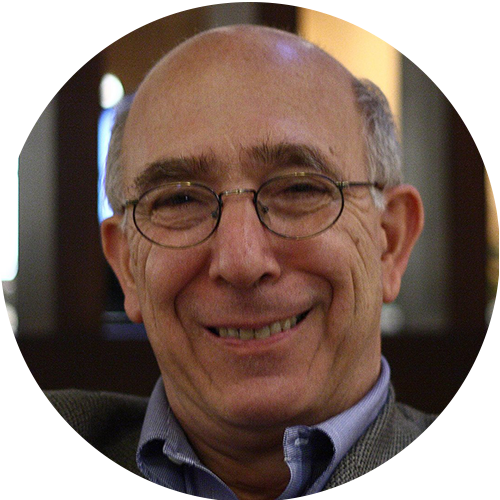Novelties, Frauds, and Protections: The Fruit Business in Nineteenth-Century America
Abstract
In the United States through the 1830s, commercial fruit nurseries were few in number, served largely local markets, and, facing little competition, did little in their catalogues to differentiate and brand their products. Beginning in the 1820s, the transportation revolution, the migrations westward, and the creation of relentlessly expanding markets steadily enlarged competition and put a premium on the innovation of novel fruits. Plants were not patentable at the time. Plant nurseries, hitherto members of close-knit local communities, had tended to rely on mutual trust to prevent the appropriation of their innovations. However, operating in increasingly impersonal regional and national markets they sought to protect their investments in the creation or acquisition of novelties by branding their products. Still, cheats could offer fraudulent or adulterated fruit trees or vines under the branded name, and purchasers would be none the wiser because it was virtually impossible to tell simply by inspection what plant or plant quality young trees or vines would eventually produce.
From the 1830s through the rest of the century, purveyors of innovations developed a variety of strategies to protect their brands. The strategies were well exemplified by several prominent nurseries, notably Ellwanger and Barry’s, in Rochester, New York; Charles Hovey’s, in Cambridge, Massachusetts; and Luther Burbank’s, in Santa Rosa, California. They emphasized in their catalogues the importance of purchasing only from reliable sources, included testimonials from happy customers, and provided lithographs – first black and white, then in color – of their branded fruits. Still, thieves of new fruit trees and vines could simply clone them and sell them under another brand name. In the face of that biological loophole, their originators charged exceptionally high prices for first sales, hoping therein to recoup the downstream revenues they would lose to appropriation. They also employed traveling salesmen to sell their trees and vines, instructed them to gain trust by behaving in a moral, upright manner, and equipped them with sample books that presented in full color the fruits purchasers would get if they bought and planted the nursery’s trees and vines. By the late nineteenth century, finding these protective strategies increasing inadequate, nurserymen began agitating for national legal protection of their branded novelties through trademarks and patents.
About the speaker
 Professor Dan Kevles
Professor Dan Kevles
Stanley Woodward Professor Emeritus of History, History of Medicine & American Studies; Adjunct Professor, Law School, Yale University
Daniel J. Kevles writes about issues in science, technology, and society, including law, past and present. His work has dealt with a variety of legal topics -- due process in allegations of scientific fraud and misconduct, genetic information and privacy, classification and national security, reproductive technologies, prescription drug prices, and intellectual property in living organisms. He is currently working on a history of innovation and ownership in plants, animals, and human genes since the Anglo-American colonial period. A recent byproduct of that project is Heirloom Fruits of America: Selections from the USDA Pomological Watercolors Collection (Heyday Books, 2020). His works include The Baltimore Case: A Trial of Politics, Science, and Character, In the Name of Eugenics: Genetics and the Uses of Human Heredity, and The Physicists: The History of a Scientific Community in Modern America. He is also coeditor, with Leroy Hood, of The Code of Codes: Scientific and Social Issues in the Human Genome Project and a coauthor of Inventing America: A History of the United States.
His articles, essays, and reviews have appeared in scholarly and popular journals including The New York Times, The New Yorker, The New York Review of Books, and the Times Literary Supplement. His honors and awards include the National Historical Society Book Prize, a Page One Award, the Watson Davis Prize, and the George Sarton Medal, along with fellowships from the Guggenheim Foundation, the National Endowment for the Humanities, and the Cullman Center for Scholars and Writers at the New York Public Library. From 1964 to 2001, he taught at the California Institute of Technology. In 2001 he joined the faculty of Yale University where he was the Stanley Woodward Professor of History and taught regularly as an adjunct in the Law School until his retirement in June 2015. He has been affiliated since then with NYU Law School as an Interdisciplinary Fellow.
About People, Plants and the Law Online Lecture Series
The People, Plants, and the Law lecture series explores the legal and lively entanglements of human and botanical worlds.
Today people engage with and relate to plants in diverse and sometimes divergent ways. Seeds—and the plants that they produce—may be receptacles of memory, sacred forms of sustenance, or sites of resistance in struggles over food sovereignty. Simultaneously, they may be repositories of gene sequences, Indigenous knowledge, bulk commodities, or key components of economic development projects and food security programs.
This lecture series explores the special role of the law in shaping these different engagements, whether in farmers’ fields, scientific laboratories, international markets, or elsewhere.
Note that all dates and times displayed are in Australian Eastern Standard Time (AEST).



